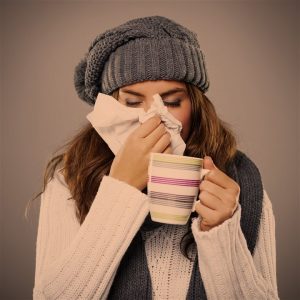(BPT) – Every year in the U.S., there are more colds than people. Annually, nearly 320 million Americans catch 1 billion colds, according to the U.S. National Library of Medicine. Seven in 10 people will turn to  over-the-counter (OTC) medicines to help them feel better – and many of these medicines may contain acetaminophen.
over-the-counter (OTC) medicines to help them feel better – and many of these medicines may contain acetaminophen.
In fact, acetaminophen is one of the most commonly used drug ingredients to reduce pain and fever, found in more than 600 OTC and prescription (Rx) medicines. When used as directed, it is safe and effective. However, taking more than the maximum daily dose (4,000 milligrams) is an overdose, and can lead to liver damage.
“Family members play an important role as caregivers when administering medicines safely,” says Mark Gibbons, director of programs and operations at Caregiver Action Network, a member of the Acetaminophen Awareness Coalition (AAC). “It’s important to double check all medicine labels to be sure you’re not accidentally doubling up on acetaminophen.”
Each year, acetaminophen overdose causes about 26,000 hospitalizations. It’s important to know the dose that is right for you and your loved ones. With the arrival of cold and flu season, the AAC’s Know Your Dose campaign offers some helpful tips for preventing illness and safe medicine guidelines if you do get sick.
Preventing illness
You can do a lot to protect yourself and your family from getting sick, including:
* Get vaccinated for the flu. It’s the best way to minimize the chance you’ll get the flu and spread it to others. Even if you got a flu shot last year, you need to get one this year, too. Each year’s shot is different, specifically designed to prevent the strain of flu expected to be most prevalent this year. The Centers for Disease Control and Prevention recommend anyone 6 months and older get vaccinated.
* Be diligent about washing your hands regularly. Each time you wash, scrub for at least 20 seconds – about how long it would take to run through two renditions of “Happy Birthday.”
* Avoid actions that spread germs, like touching your face, especially the eyes, nose and mouth. If you do get sick, stay home from school or work to avoid spreading germs to others.
* Maintain good health habits, including getting plenty of sleep, exercising regularly, drinking plenty of fluids and eating nutritious food. All these actions help build your immune system.
Know your dose
If you or a family member does fall ill, you may decide to treat symptoms with medicine, which might contain acetaminophen. To ensure you’re using acetaminophen safely, follow these steps:
* Always read the label on any medicine you take. Be sure you understand and follow the dosing instructions.
* Know if your medicine contains acetaminophen. It’s important to know which of the medicines you’re taking contain acetaminophen so you can ensure you’re not taking too much.
* Take only one medicine that contains acetaminophen at a time. Taking more than one medicine that contains acetaminophen could put you at risk for exceeding the maximum daily dose.
If you have questions about an OTC or prescription medicine that you’re taking, talk to a healthcare provider.
To learn more, visit KnowYourDose.org and follow @KnowYourDose on Twitter.


